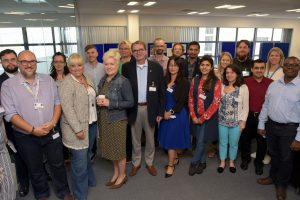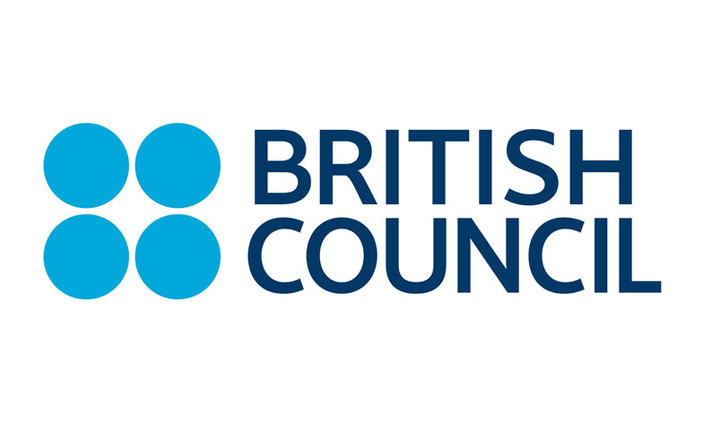
Demonstrating impact is becoming an increasingly normal part of academic life, with changes in the external environment underpinning the need to show how research is making a difference beyond academia. As well as forming a significant part of a university’s REF submission, impact pathways are often included as a routine part of funding applications.
In order to support impact development at Bournemouth University, an impact fund was established in spring 2019, overseen by the Research Impact Funding Panel. The first call for applications was launched in March 2019 for the remainder of the 2018/19 academic year. This call is now closed.
For 2019/20, the Research Impact Fund has been split into three strands:
- To support the development of new research partnerships and networks, to lay the groundwork for future research projects (£17,500)
- To provide support for emerging impact from existing underpinning research (£17,500)
- For the development of impact case studies for REF2021 (£15,000)
We are pleased to announce that the fund is now open for applications for strands 1 and 2. A separate call for strand 3 will be announced in the summer following feedback from the current mock REF exercise.
Eligibility
1. To support the development of new research partnerships and networks, to lay the groundwork for future research projects (£17,500)
This strand is aimed at Early Career Researchers (those who are within 7 years of completing their doctorate, or equivalent experience, and are not Associate Professors / Professors) and/or staff who are new to research (academic staff who have not published an academic output, or received internal or external funding for research). The funding aims to support colleagues to engage with key stakeholders at the very beginning of the research process, to establish partnerships and networks to support the co-creation of research questions.
2. To provide support for emerging impact from existing underpinning research (£17,500)
This strand is aimed at academic staff who have evidence of existing underpinning research which has the potential for impact, or is starting to result in impact. The funding aims to support the development of research impact across BU and begin to identify potential case studies for post-REF2021 exercises.
3. For the development of impact case studies for REF2021 (£15,000)
This strand is for academic staff already developing case studies for REF2021. One funding call for this strand will be launched in August 2019, following feedback from the current mock REF exercise.
Application process
To apply, please read the application form and guidance. Applications must be submitted to researchimpact@bournemouth.ac.uk by Friday 2 August.
If you have any questions about your application please email either Rachel Bowen (for HSS or FM queries) or Genna del Rosa (for FMC or SciTech queries).
You can also seek advice from the following RDS colleagues when developing your application:
- Adam Morris – Engagement Officer
- Amanda Edwards – Impact Officer for SciTech
- Amanda Lazar – Impact Officer for HSS
- Brian McNulty – Impact Officer for FMC
- Matt Fancy – Impact Officer for FM
BU’s Research Principles
Putting the Research Impact Fund into strategic context, under BU2025, the following funding panels operate to prioritise applications for funding and make recommendations to the Research Performance and Management Committee (RPMC).
There are eight funding panels:
- HEIF Funding Panel
- GCRF Funding Panel
- Research Impact Funding Panel
- Doctoral Studentship Funding Panel
- ACORN Funding Panel
- Research Fellowships Funding Panel
- Charity Support Funding Panel
- SIA Funding panel
Please see further announcements regarding each initiative.
These panels align with the BU2025 focus on research, including BU’s Research Principles. Specifically, but not exclusively, regarding the Research Impact Funding Panel, please refer to:
- Principle 5 – which sets of the context for such funding panels,
- Principle 6 and Outcome 9 – which recognises the need for interdisciplinarity and the importance of social science and humanities (SSH).













 The
The 













 Dr. Ashraf cited on ‘Modest Fashion’ in The Guardian
Dr. Ashraf cited on ‘Modest Fashion’ in The Guardian NIHR-funded research launches website
NIHR-funded research launches website Academics write for newspaper in Nepal
Academics write for newspaper in Nepal New paper published on disability in women & girls
New paper published on disability in women & girls Global Consortium for Public Health Research 2025
Global Consortium for Public Health Research 2025 MSCA Postdoctoral Fellowships 2025 Call
MSCA Postdoctoral Fellowships 2025 Call ERC Advanced Grant 2025 Webinar
ERC Advanced Grant 2025 Webinar Horizon Europe Work Programme 2025 Published
Horizon Europe Work Programme 2025 Published Horizon Europe 2025 Work Programme pre-Published
Horizon Europe 2025 Work Programme pre-Published Update on UKRO services
Update on UKRO services European research project exploring use of ‘virtual twins’ to better manage metabolic associated fatty liver disease
European research project exploring use of ‘virtual twins’ to better manage metabolic associated fatty liver disease